 Society
Society
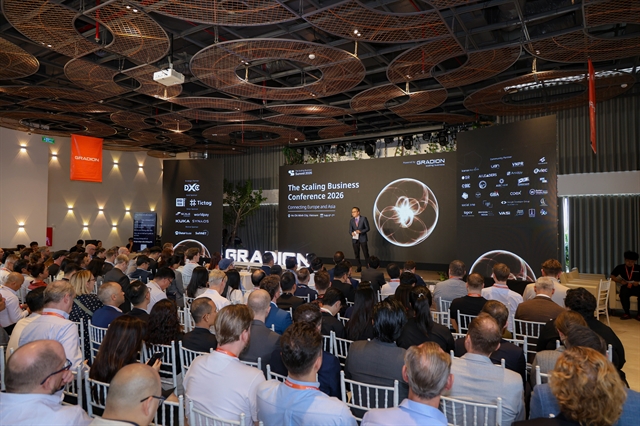
Vũ Ngọc Tâm has always had a passion for information technology, and is making it his goal to foster the next generation of Vietnamese scientists and tech entrepreneurs.
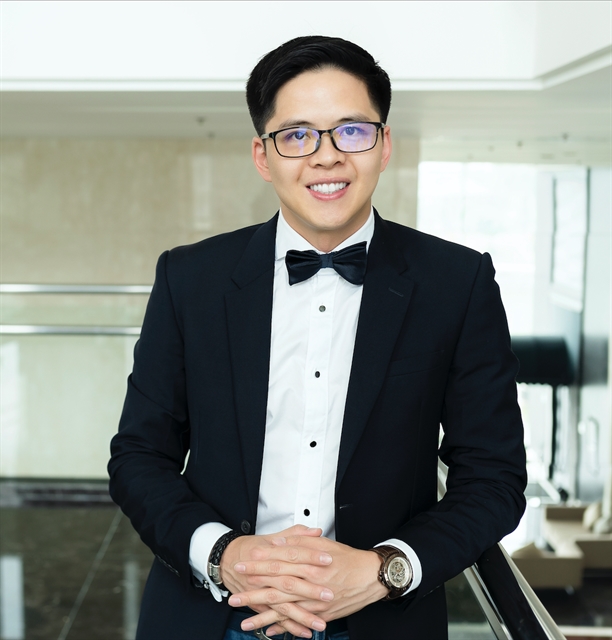
HÀ NỘI — No half measures.
That’s the one thing that has stood out about Vũ Ngọc Tâm since he was a kid.
When he developed a liking for badminton, he found a coach to teach him how play better. When he wanted to sing, he got trained by a vocal coach. As a youth, he dabbled in many things and gave each of these attempts his all.
But the one area where he shone was information technology, and he made it a habit to win award after award through his high school years.
In 2006, Tâm graduated from and worked for a year at the Hà Nội University of Science and Technology before embarking on a PhD in Computer Science at the Rutgers University in the US.
In 2013, Tâm founded the Mobile and Networked Systems (MNS) lab at the University of Colorado, where his team focused on inventions and research in healthcare. They built an intelligent system to improve and change the way people care for health, especially that of children.
His work has been recognised with many prestigious awards including the Alfred Sloan Award, NSF CAREER award, two Google Faculty awards, ten best paper awards, best paper nominations, and research highlights in flagship venues.
He is also actively pushing his research outcomes into practice through technology transfers. Towards this, he has filed 25 patents and attracted institutional investment for two start-ups that he co-founded: Earable Inc. and Now Vitals Inc.
His research also touches on securing critical systems and providing seamless network connectivity for smart and connected cities.
His first notable project was to "locate a phone in a car" in response to the US government calling for initiatives to reduce traffic accidents caused by the use of phones while driving.
The “Acoustic Localisation of Mobile Phones in Car for Driver Safety Applications” project sought to improve driver safety by appropriately allowing or denying calls to the driver's mobile phone based on the location of the phone inside the car.
The novelty of the technology is the ability to teach the phone to learn its own location inside the car to decide if it is being used by a driver or by a passenger, and accordingly enforce call policies.
The project won a best paper award at Mobi Com 2011, the world's leading mobile technology conference, kicking off a spree of similar recognitions that came in throughout his career. He went on to win two more Mobi Com awards.
In 2014, he won the "Google Faculty Research Award" for inventing a security ring that can store almost unlimited passwords.
An ear for sound health
In 2019, his company Earable Inc., which was founded to commercialise a series of new inventions that his lab developed, won a VNĐ10 billion (US$430,848) grant from Vingroup’s VinTech Fund. This one aimed to bring "the best technology of Vietnamese people to Việt Nam".
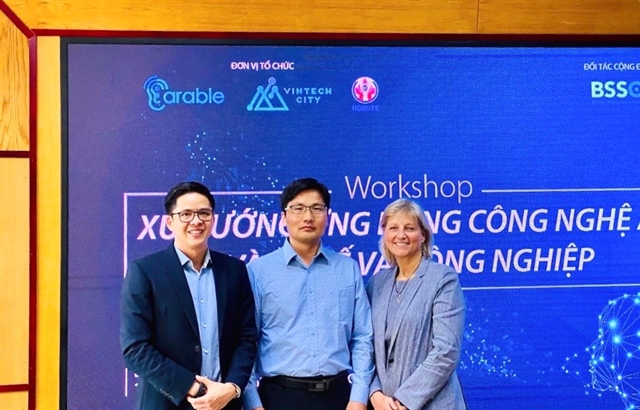
Earable’s founding mission is to enhance human’s cognitive functions from their ears. The company makes smart earphones that can capture various vital signals and biological signals from user’s ear and use that to improve the health and well-being of users.
In its initial application, the Earable smart earphone is expected to help track and improve the quality of sleep, thereby providing the necessary treatment regimen for some sleep disorders and improving the users’ concentration.
At its core, Earable is an earbud packed with biosensors for convenient health quantification, Tâm said.
“It a wireless smart headset that tracks brain waves, facial muscles, and eye movements in real time, thereby helping monitor and improve the quality of sleep,” he added.
“Sleep accounts for about a third of the total lifetime of each person. In other words, sleep is very important. But statistically, up to 2.1 billion people around the world (about 27 per cent) have sleep problems. Several solutions have been proposed for this problem, but these have come with barriers. They have been too expensive or too annoying for users. That is why we have spent a lot of time, the last five years, researching Earable,” he said.
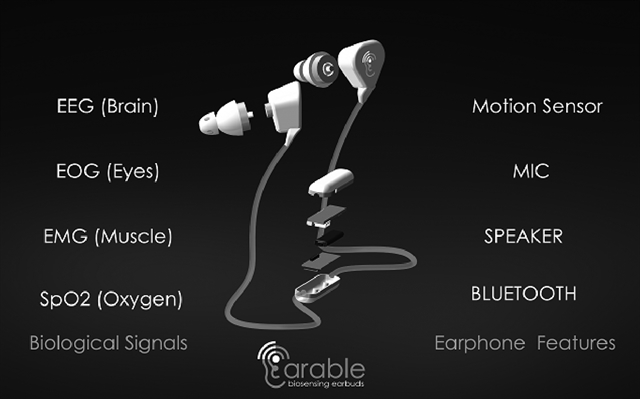
Developed with a team of experts in technology, health, product development and manufacturing, the Earable prototype has been clinically tested in a US hospital with an accuracy of about 95 per cent compared to the gold-standard equipment being used in hospitals today, while the price is up to 200 times cheaper.
However, Tam said the device can go further. He said it carries great potential for delivering a healthier, more active and more productive life to people not only in terms of sleep improvement, but also in other areas such as detecting the onset of autism, enhancing meditation, suppressing epilepsy, and assessing a child’s interests.
“Earable also has the potential to help users control hearing aids, prevent distraction and drowsiness among drivers and reduce traffic accidents, among other applications.”
As the father of the earable technology, Tâm was granted the 2020 Sloan Research Fellowships in recognition of his scientific research in wearable and wireless technology, focusing on the invention of devices that help aid and improve the quality of human health and life.
Awarded annually since 1955, the prestigious 2020 Sloan Research Fellowships were granted to 126 outstanding young researchers working in the US and Canada, in recognition of their distinguished performance and unique potential to make substantial contributions in eight scientific and technical fields, including chemistry, computer science, economics, mathematics, computational and evolutionary molecular biology, neuroscience, ocean sciences, and physics.
Tâm and his team expect to have the minimum viable product (MVP) for Earable this September, mass produce it and introduce it to the market by Christmas 2021.
Searching for researchers
As a professor and a scientist, Tâm is passionate about creating new knowledge that has the potential to create positive impacts on the society.
“But for inventing cutting edge technology through research and development, we need a combination of three elements: human resources, financial resources, and a strong research environment,” Tâm said.
He said funding for science and technology research in Việt Nam has improved a lot over the last decade but it was still very limited, making it challenging for most researchers to aim high.
Through his involvement and participation with major US funds like the National Science Foundation (NSF) and National Institute of Health (NIH), he found that they invest in scientific research with a vision for 20-30 years and allocate large sums for the purpose. The NIH pours up to $38 billion and NSF about $8 billion into scientific and technological research.
“They are not only interested in the results of each project, but pay special attention to how many people in the hi-tech area will benefit from the project. This is especially important because any organisation’s core value is its people. The results are temporary, the research will eventually become outdated and a product will become old, but the one thing that remains fresh is human resources – the main factor for science to develop,” he said.
Fostering Vietnamese intellectuals
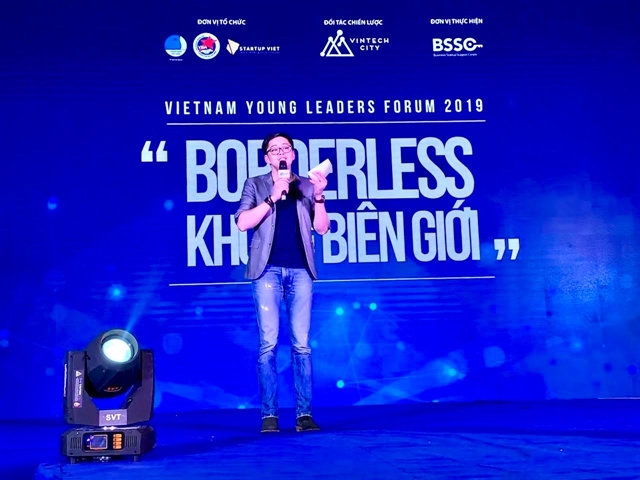
As a professor at the Oxford University (UK) and the University of Colorado (US), Tâm has a keen interest in encouraging and supporting Vietnamese students to pursue their passion in science by encouraging them to go abroad for higher education.
“I want to contribute to the making of a new generation of Vietnamese intellectuals who are as competitive as others from other parts of the world,” he said.
Elaborating on his motivation, he said: “I have been very lucky and owe much of my achievements to my parents who devotedly and willingly created opportunities for me to learn anything I wish. From graduate school, I was fortunate enough to meet with and be advised by great mentors in my field who patiently walked me through the steps needed to become an independent scientist.”
Now, he wants to create similar opportunities for others.
Therefore, “what we invest in is not a few research projects but a focus on enabling talented people to develop. For example, the students that we train and support will become professors and then they will help other students to become professors, and so on. I believe the students that I have trained and now became professors already will do the same,” he said.
“That’s also the reason why I only recruit those who wish to become professors and not those who wish to work for tech giants such as Microsoft, Amazon or Google after graduating,” he said.
Over the past six years, Tâm has managed to attract and raise about US$7.5 million to support the research and development of various mobile and wearable technologies with his students in the lab.
“I want to create opportunities for young Vietnamese people to have a passion for research because this passion will lead young people to go far, sometime, beyond their own imagination. I strongly believe that the next generation of Vietnamese students and future scientists will go a lot further.”
He said his main advice for young people is to pursue all their passions and make many mistakes.
“At the end, everything connects,” he said.
“During my time in college, I tried many things: being a model for a famous Vietnamese brand doing fashion work; being an MC at events; being a singer performing at night bars; and even being a football ticket dealer whenever our national team played. All these give me the confidence I have today, the communication skills I have today, but none of them gave me the passion to pursue and excel.
“So before you are 25, explore, try everything, try really hard, and give it your best. Every time you try, if you fail, remember to fail forward – that is, be a better you after each time. Then pick yourself up quickly and move forward - but always, give it your best.
“After you fail a lot, you’ll know what you’re passionate about, since you can only be good at what you have a passion for.” — VNS




